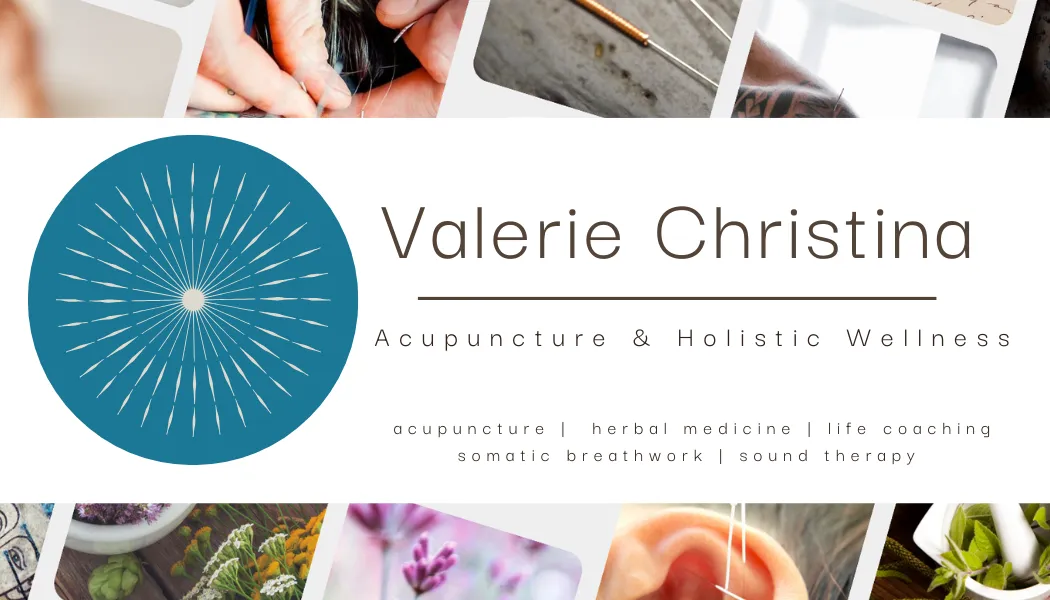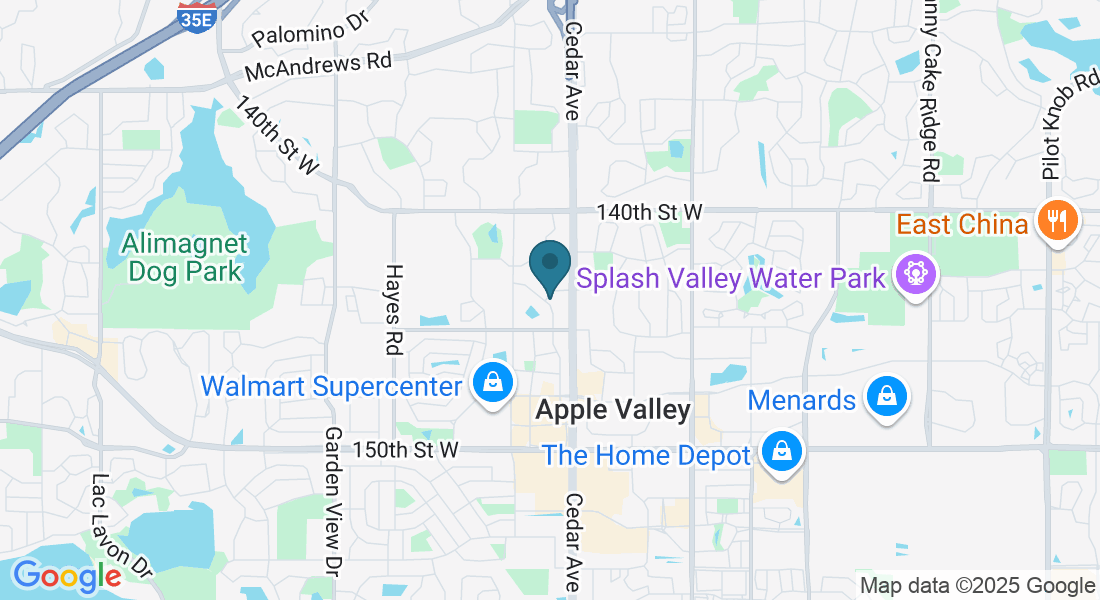Holistic Health Through Somatic Wisdom
Where mind and body reconnect
In the heart of Apple Valley
By Appointment Only
Schedule Links
What To expect
Frequently Asked Questions
Let's dive deeper into some of the most common questions
What should I wear to my session?
I recommend wearing loose, comfortable clothing that allows easy access to areas like arms, legs, shoulders, and abdomen. You’ll remain covered and cozy throughout your session.
Does acupuncture hurt?
Most people find acupuncture very relaxing and often fall asleep. The needles are hair-thin and often painless. You may feel a gentle sensation, like tingling or warmth—that’s the qi moving!
How long does a session last?
Your first visit will take about 75 minutes to allow for a full intake and treatment. Follow-up sessions last 60 minutes.
How long are the needles left in?
Acupuncture needles are commonly left in for 20-30 minutes with the overall treatment session lasting 60 minutes.
What types of concerns do you treat?
I work with a wide range of issues including hormonal balance, emotional health, stress, fatigue, pain, digestive concerns, and nervous system regulation. View full list → HERE
Do you take insurance?
I’m an out-of-network provider and do not bill insurance directly, but I’m happy to provide a superbill upon request so you can submit it to your provider.
Can I come in if I’m on medication or under the care of another provider?
Absolutely. Acupuncture and holistic modalities are safe to use alongside most conventional treatments. Please share any relevant medical history so we can create the most supportive plan for you.
What if I’m afraid of needles?
Totally valid! Many of my clients started out unsure, too. I’ll walk you through everything and can use extra gentle techniques—or focus on sound therapy techniques using tuning forks on acupuncture points, instead of needles, if needed.
Do I need to do anything special before or after treatment?
Eat a light meal beforehand, stay hydrated, and avoid caffeine or alcohol right before your session. Afterward, allow space for rest, gentle movement, or reflection.
How does acupuncture affect the brain and nervous system?
Acupuncture has been shown to stimulate the release of natural feel-good chemicals like dopamine, serotonin, and endorphins—your body’s own painkillers and mood boosters. It also helps regulate the autonomic nervous system, shifting you out of fight-or-flight and into a parasympathetic, rest-and-repair state. That’s why many clients feel both calm and energized after a session.
How does acupuncture support the immune system and reduce inflammation?
Acupuncture stimulates the body’s natural healing response by improving circulation, modulating immune activity, and reducing pro-inflammatory markers. Research shows it can help regulate cytokine levels, promote tissue repair, and ease inflammation—making it highly effective for joint pain, muscle tension, autoimmune-related symptoms, and recovery from injury.
Can acupuncture help with mental health conditions like PTSD, anxiety, or depression?
Yes. Acupuncture is increasingly recognized for its ability to support mental and emotional well-being. By calming the sympathetic “fight or flight” response and activating the parasympathetic nervous system, acupuncture helps regulate cortisol, reduce hypervigilance, and improve sleep quality. Many clients report feeling more grounded, emotionally balanced, and resilient—especially when managing conditions like PTSD, anxiety, depression, and trauma-related symptoms.
Acupuncture doesn’t replace mental health therapy but works beautifully alongside it—helping to regulate the body's nervous system - while therapy works with the mind and underlying psychological conditions and triggers.
What’s the difference between life coaching and therapy?
Life coaching focuses on present-moment awareness, personal growth, and forward movement. It helps you clarify your values, shift mindset patterns, and take aligned action—especially when paired with somatic and energetic tools. Therapy, on the other hand, often involves diagnosing and treating mental health disorders and processing unresolved trauma in depth.
While there can be some overlap in how emotions arise, life coaching is not a substitute for mental health therapy. If deeper psychological support is needed, I’m happy to help you find a trusted provider. Many clients find that coaching complements therapy beautifully, especially when working on embodiment, nervous system resilience, and integration.
Curious if coaching is right for you? Book a free discovery call → HERE
When is fire cupping recommended?
Fire cupping is a therapeutic technique where glass cups are applied to the skin using heat to create a vacuum seal. This gentle suction promotes circulation, relieves muscle tension, and encourages the flow of qi (vital energy) in the body's meridian system. It is commonly used to alleviate pain, reduce inflammation, improve blood flow, and promote relaxation. Fire cupping is also believed to help detoxify the body by drawing impurities to the skin's surface, making it a versatile therapy for enhancing overall well-being and treating a variety of conditions.
1. Pain Relief: It can help alleviate muscle pain, joint pain, and stiffness, particularly in conditions like back pain, neck pain, and shoulder tension.
2. Inflammation: Fire cupping may reduce inflammation, making it beneficial for conditions such as arthritis and sports injuries.
3. Relaxation and Stress Reduction: The therapy promotes relaxation and helps reduce stress and anxiety levels.
4. Improving Blood Flow: It can enhance circulation, which may aid in healing and recovery from injuries.
5. Detoxification: Some believe fire cupping helps detoxify the body by drawing toxins to the skin's surface.
6. Respiratory Issues: It is sometimes used to treat respiratory conditions such as colds, asthma, and bronchitis by promoting the flow of energy and improving lung function.
When is electro-acupuncture used?
Electro-acupuncture is a therapeutic technique that combines traditional acupuncture with electrical stimulation. Thin needles are inserted into acupuncture points on the body, and a mild electric current is applied through the needles. This stimulation enhances the effects of acupuncture by promoting circulation, relieving muscle tension, and regulating the flow of qi (vital energy) in the body's meridian system. It is commonly used to alleviate pain, reduce inflammation, and enhance overall well-being. Electro-acupuncture may also support rehabilitation and recovery from injuries, making it a versatile therapy for treating various conditions.
1. Pain Relief: It can effectively alleviate acute and chronic pain, including conditions such as back pain, arthritis, and headaches.
2. Inflammation: Electro-acupuncture may help reduce inflammation, making it beneficial for inflammatory conditions and sports injuries.
3. Muscle Rehabilitation: The therapy can aid in muscle rehabilitation and recovery by improving blood flow and stimulating muscle fibers.
4. Regulation of Nervous System: It may help regulate the nervous system, contributing to stress reduction and relaxation.
5. Enhancing Acupuncture Effects: Electro-acupuncture enhances the effectiveness of traditional acupuncture treatments by providing continuous stimulation to acupuncture points.
6. Supporting Rehabilitation: It is often used in rehabilitation settings to complement physical therapy and speed up recovery from injuries.
When is somatic release breathwork used?
Somatic release, or holotropic breathwork, is a therapeutic practice that uses controlled breathing techniques to facilitate deep emotional and physical release. Participants engage in rhythmic breathing patterns that induce a heightened state of consciousness, allowing suppressed emotions and tensions to surface and be processed. This approach aims to promote self-healing, enhance self-awareness, and facilitate personal growth. Somatic release breathwork sessions are conducted in a safe and quiet environment, where I guide you through breath holds and various prompts. It is particularly beneficial for individuals seeking profound emotional release, stress reduction, and personal transformation.
1. Emotional Release: Somatic release breathwork can help individuals release pent-up emotions, trauma, and stress stored in the body.
2. Stress Reduction: The practice induces a deep state of relaxation, promoting stress relief and mental clarity.
3. Personal Growth: It facilitates introspection and self-discovery, fostering personal growth and inner transformation.
4. Healing Trauma: Somatic release breathwork is effective for healing emotional wounds and trauma, offering a holistic approach to recovery.
5. Spiritual Exploration: It can deepen spiritual experiences and connections, providing insights into one's inner world and consciousness.
6. Integration and Wellness: The practice supports overall well-being by integrating mind, body, and spirit, promoting a sense of balance and harmony.
Understanding Herbal Medicine and Prescription Drugs: Exploring Interactions and Contraindications
Herbal medicine offers natural alternatives and complements to conventional prescription drugs, but understanding how they interact is crucial for safe and effective treatment.
1. Complementary Benefits: Herbal medicine can enhance the effects of prescription drugs or provide additional therapeutic benefits.
2. Potential Interactions: Certain herbs may interact with prescription medications, affecting their efficacy or causing adverse effects.
3. Contraindications: It’s essential to be aware of contraindications—instances where specific herbs and drugs should not be used together due to potential health risks and to ensure safe integration of herbal remedies with prescription treatments.
4. Personalized Approach: Tailoring herbal medicine to individual health needs and medication regimens promotes holistic wellness while minimizing risks.
Learn more about integrating herbal medicine safely and effectively into your health care routine.
Preparing for Your Treatment Session
1. Wear Comfortable Clothing: Choose loose, comfortable clothing that allows easy access to acupuncture points.
2. Avoid an Empty Stomach: It's best to have eaten a light meal a few hours before your session to avoid feeling lightheaded.
3. Stay Hydrated: Drink plenty of water both before and after your session to support the body's natural healing processes.
4. Visit the Restroom: Ensure you've used the restroom before your session to maximize comfort during treatment.
5. Minimize Distractions: Turn off your cell phone and any distractions to fully relax and benefit from the session.
6. Plan a Relaxing Evening: After your acupuncture session, enjoy a calm evening to enhance the therapeutic effects, as your body enters a state of relaxation and rejuvenation.
Join Me On Substack
Stay connected and inspired, with weekly insights on life coaching, acupuncture and somatic practices for personal transformation, resilience, emotional balance, and holistic health.
© Copyright 2026. Valerie Christina Acupuncture & Holistic Wellness. All rights reserved.
Privacy Policy
Terms and Conditions

